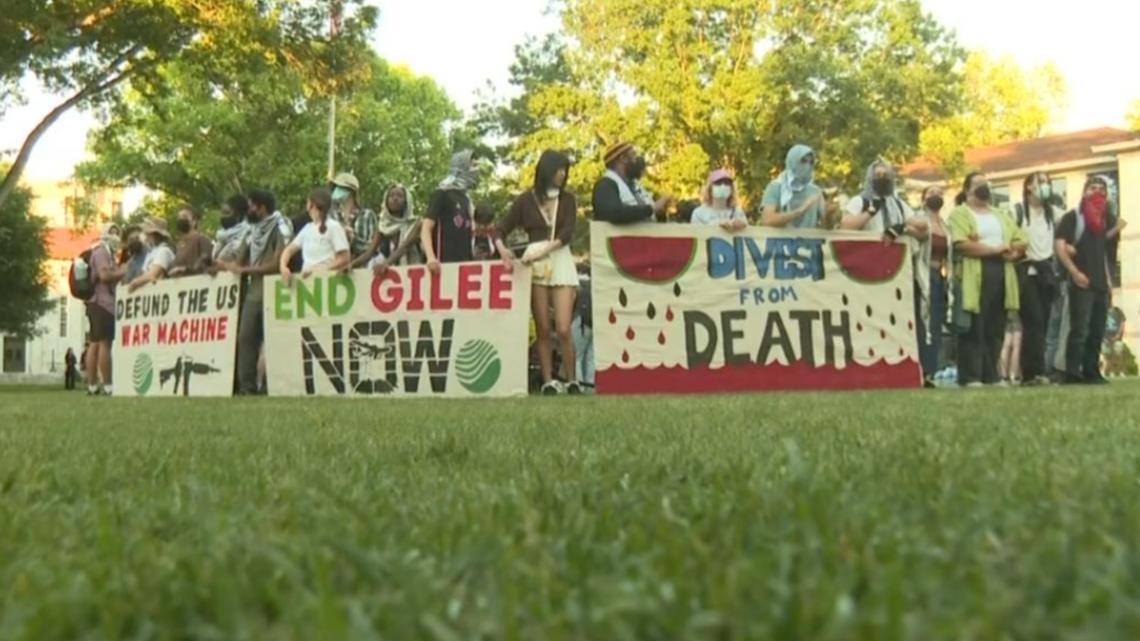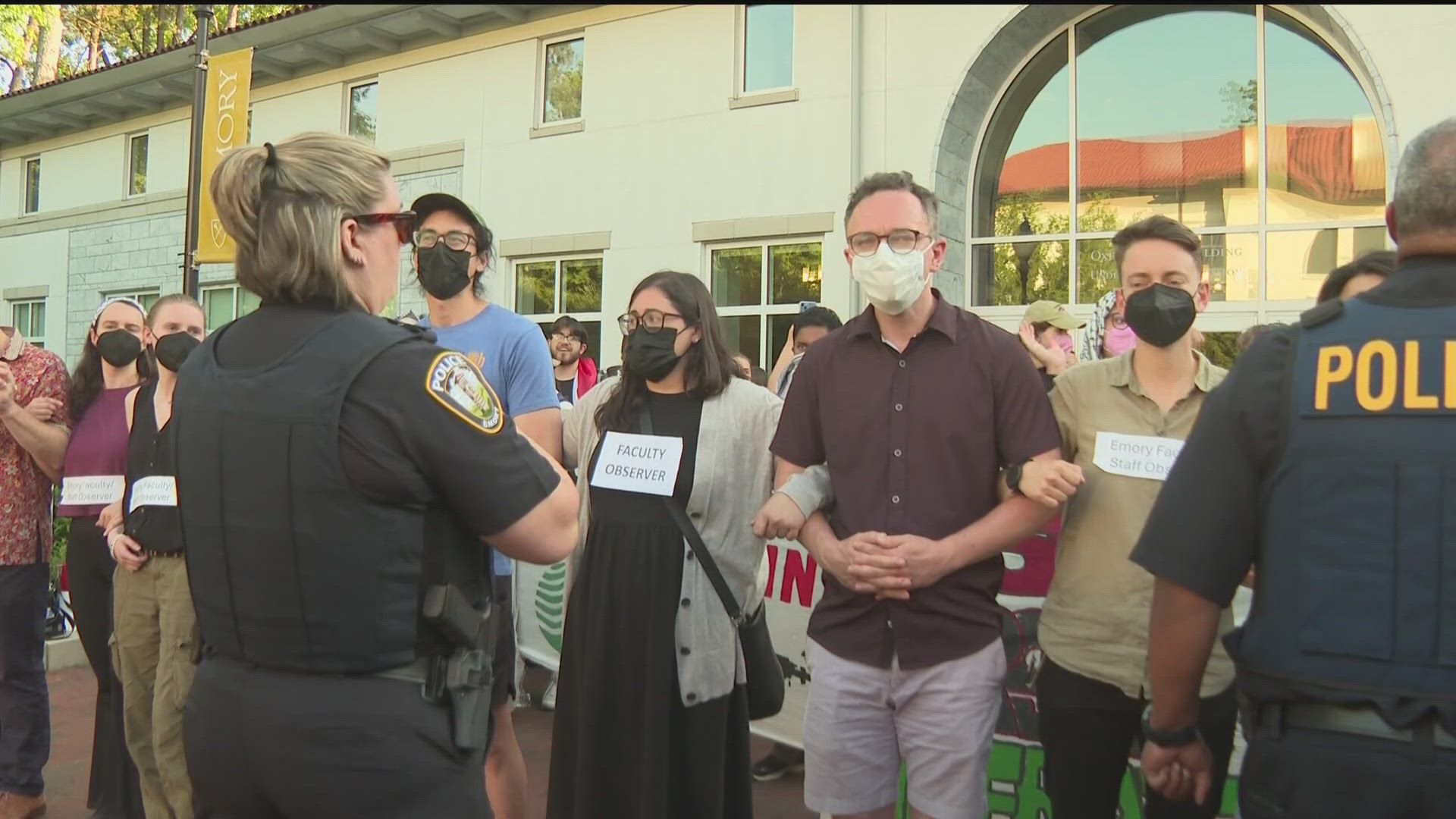ATLANTA — For nearly a week, students and other groups have continued to protest in support of Palestine on Emory University's Campus.
That continued Wednesday evening, as pro-Palestine protesters set up an encampment in front of the campus' admission building and went inside the building for a time, and some counterprotesters also gathered.
Faculty observers used crowd control to keep the groups separate.
Demonstrators supporting Palestine locked arms in front of the admissions building at one point, temporarily refusing to move.
Soon after this, extra police presence showed up. Emory Police asked the protestors to move and eventually, the crowd marched their message to the quad.
Demonstrators remained in the quad, dispersing completely around 10 p.m. On the megaphone, an organizer said they believe their actions are working and will eventually move the university to divest, as protesters asking.
Some earlier demonstrations at Emory have intensified, ending in arrests, tear gas, and vandalism. In response, a spokesperson for Emory University said they were increasing security with more patrols, cameras and campus lights.


Student Kamir said he's watching the unrest unravel.
"It's just a big divide in Emory that I haven't necessarily seen before," Kamir said.
Kamir says despite the unrest, he feels safe.
"I've heard that people have said that (they feel unsafe), but no one has ever told me that they're unsafe," Kamir said.
A Jewish student, who was among a group that approached the protest crowd and were turned away by the faculty performing crowd control, said he doesn't fear for his safety either.
"I feel safe. It's peaceful," the student, who prefers we don't share his names, said.
However, he understands the university's decision.
"It just makes everyone on both sides, I think, feel safer," he said.
Neeti Patel, the graduate student body president, said she felt the security measures were heavy-handed.
"I actually think it's dangerous how Emory's increase of surveillance resembles Israeli apartheid," Patel said. "There's an increased police presence, there's higher surveillance. And I think it just shows that Emory's not really listening to their students."
Patel said she believes the increased surveillance is a sign that the campus still doesn't understand why they're protesting in the first place.
The Jewish student who part of the group that was turned away from the protest said he supports the right to protest, but felt the pro-Palestine demonstrators were getting preferential treatment.
"I think it can get a little ridiculous when they're allowed to block off buildings," he said. "Block off Starbucks, back off... I mean, the main admission center for a college. We all pay tuition. We deserve the same kind of area and space that they do... it (the protest area) is a border for me, but they can go back and forth."
Patel saw it the opposite way, and said it was "unfortunate that they're not being able to protest in the way that they want to," with police moving the crowd out from in front of the admissions building on Wednesday and clearing out the first encampment that appeared on campus last Thursday. That clearing operation sparked a chaotic scene that resulted in 28 arrests, 20 of them that the school said were members of the Emory community.
"I think it just goes to show the resiliency of these students and the demands that they're asking for," Patel said of the continuing demonstrations, "which is complete divestment of Israeli apartheid and capacity."



